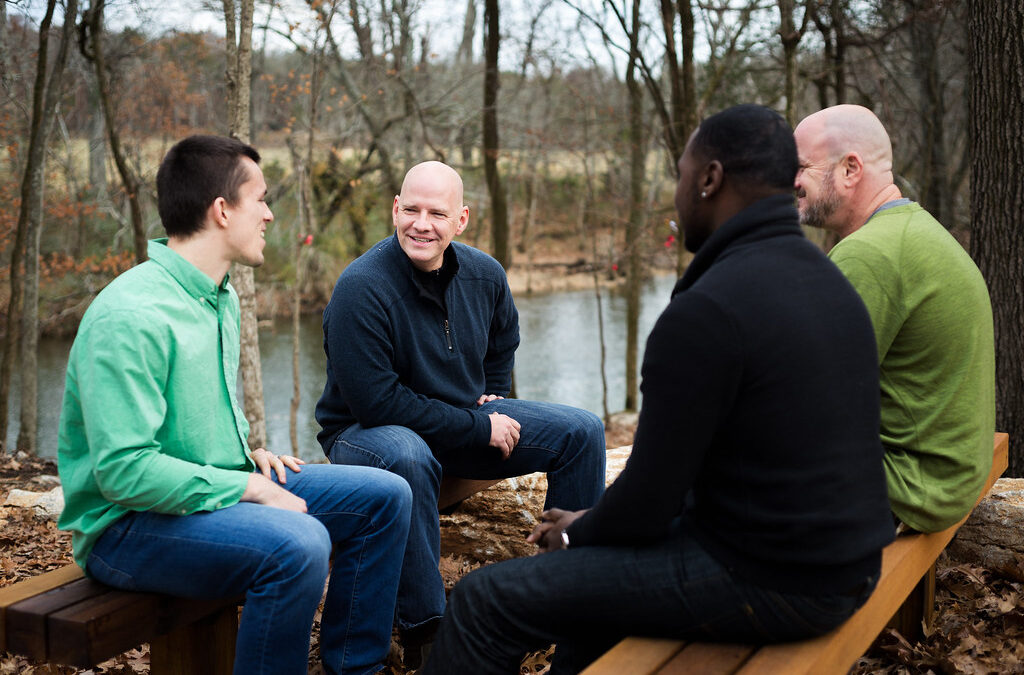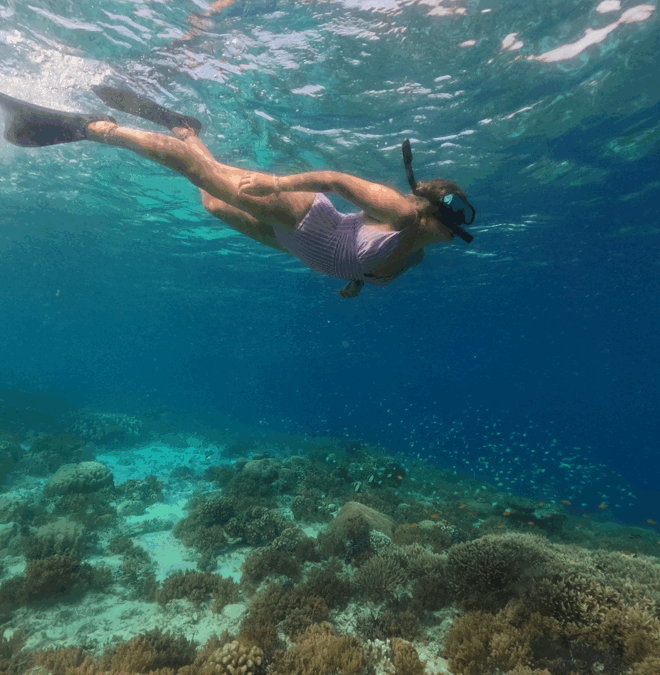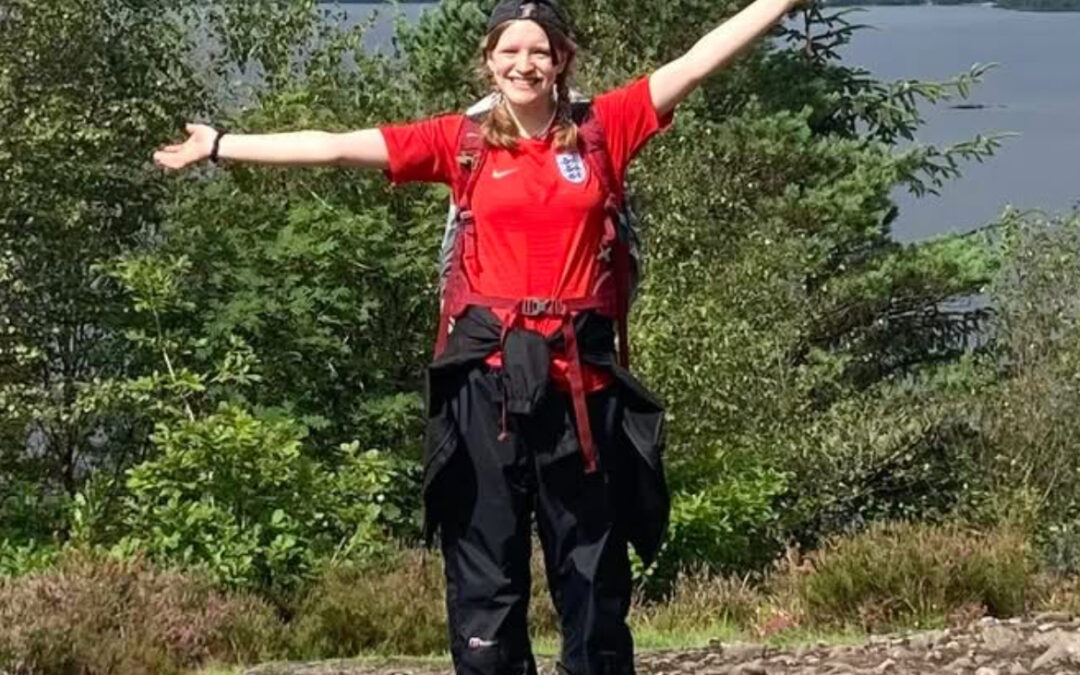The Optimist follows Alan Corcoran’s adventure, telling his emotional journey and determination to turn his grief into a monumental challenge of swimming 500 kilometres along the coast of Ireland in memory of his dad, raising funds for charities close to his heart and his family’s heart.
The water punched the air out of his lungs. The icy shock tore through him, stealing his breath and overpowering his thoughts. Alan pushed towards his two friends on the ‘semi-sinking’ support boat, but even from the water, he could see the doubt on their faces, thinking “, Jesus Christ, has this guy done any training?”
He had, but the cold was something else entirely. It wasn’t long before Alan found himself back on the rocky shore, alone, crying and thinking, “this is awful,” after his support boat failed him. But as the sting of disappointment settled, he started to think about where he began, barely being able to swim one length of the pool without gasping for air, and now how far he’d come, embarking on his swim down the Irish Coast, he realised he couldn’t have given it any more. At that moment, Alan remembered why he’d first taken the plunge.
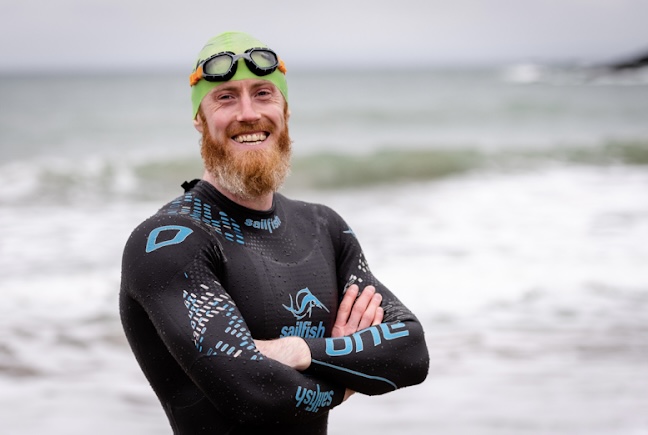
Credit: David Murphy
Alan Corcoran grew up in Tramore, a small town on the South East coast of Ireland. From a young age, he was into sports. Alan says he was “a ball of energy”, so his parents encouraged him to tire himself out before he could “cause too much damage” at home. Alan’s dad was his biggest supporter when it came to his adventurous side, despite not being a big “outdoorsman” himself, he was always encouraging of Alan’s “wilder side”, where his ‘mam’ was “overly cautious” and according to Alan, would “wrap [him] up in cotton wool if she could”.
If you’re enjoying this story – try a tribute to grief and how to get through it.
Alan’s dad suffered a stroke in 2012, a moment in Alan’s life which sparked his desire to turn his energy into something meaningful, leading him to raise around €15,000 for the Irish Heart Foundation by running 35 marathons in 35 days.
In 2016, Alan’s dad was diagnosed with cancer and he went home to Ireland to help care for him. Not long after returning home, his dad passed away. Coming back to work in London during the the worst time in his life, was “a strange thing.” Alan says, “After experiencing hardship and suffering, it’s surreal to suddenly be back in an office, sitting at a desk, trying to process planning applications.”
Alan had read Sean Connery’s book about a multi-stage swim before he lost his dad, and during the lowest point in his life, he saw it as something positive to channel his energy into. Alan says he tried to “get some sort of glimmer of good” out of something so challenging.
After he had to stop during his first attempt, Alan got back to training. In hindsight, he recognised he was “just gung-ho too early”, but he was determined to give it another go and complete the swim as a homage to his dad.
Learning from the mistakes of his first swim in 2017, Alan took out a loan and hired a 32-foot sailboat, a far cry from the small rubber dinghy he’d used on the first attempt. In 2019, he was joined by a team of strangers, including sailors, people passionate about sailing, and individuals personally affected by stroke or cancer.
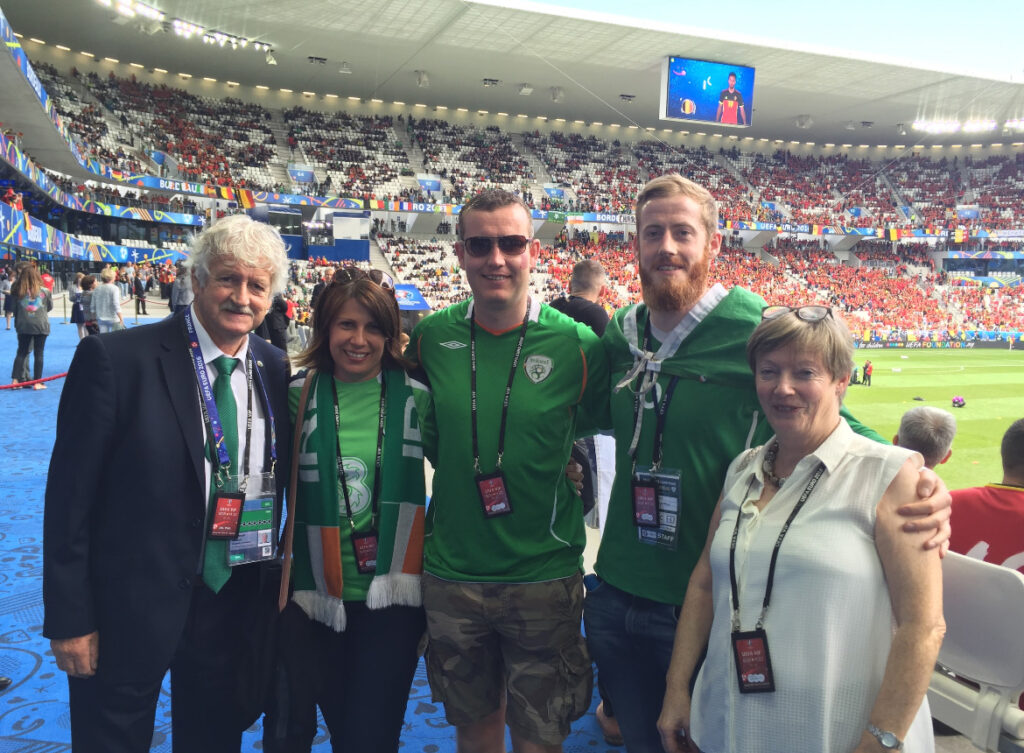
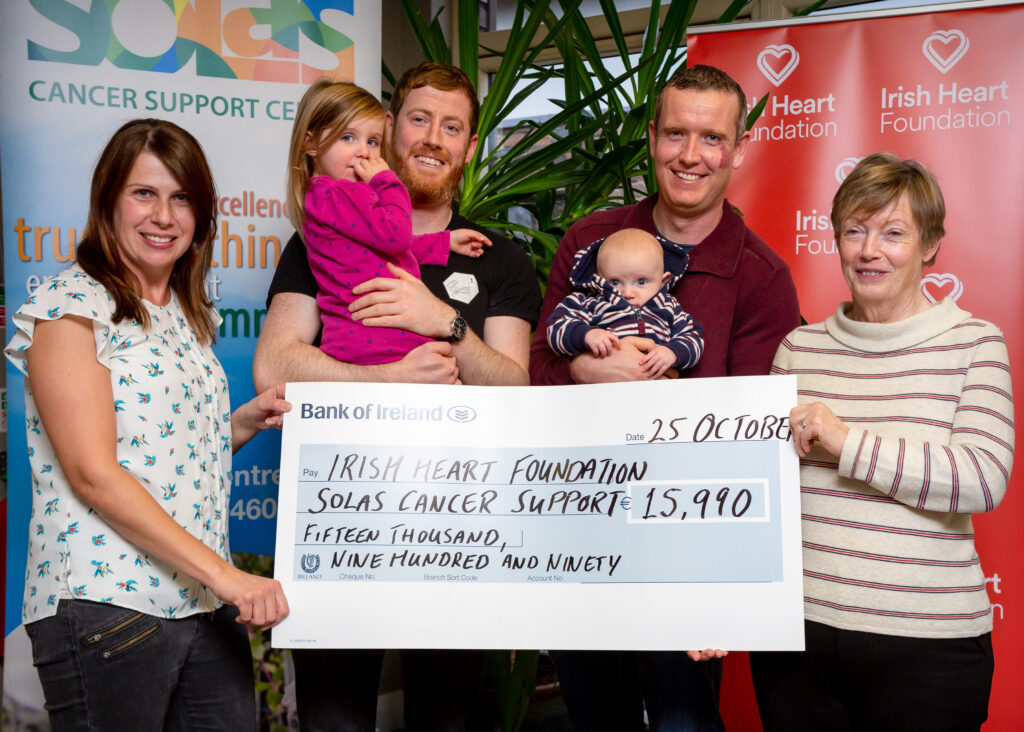
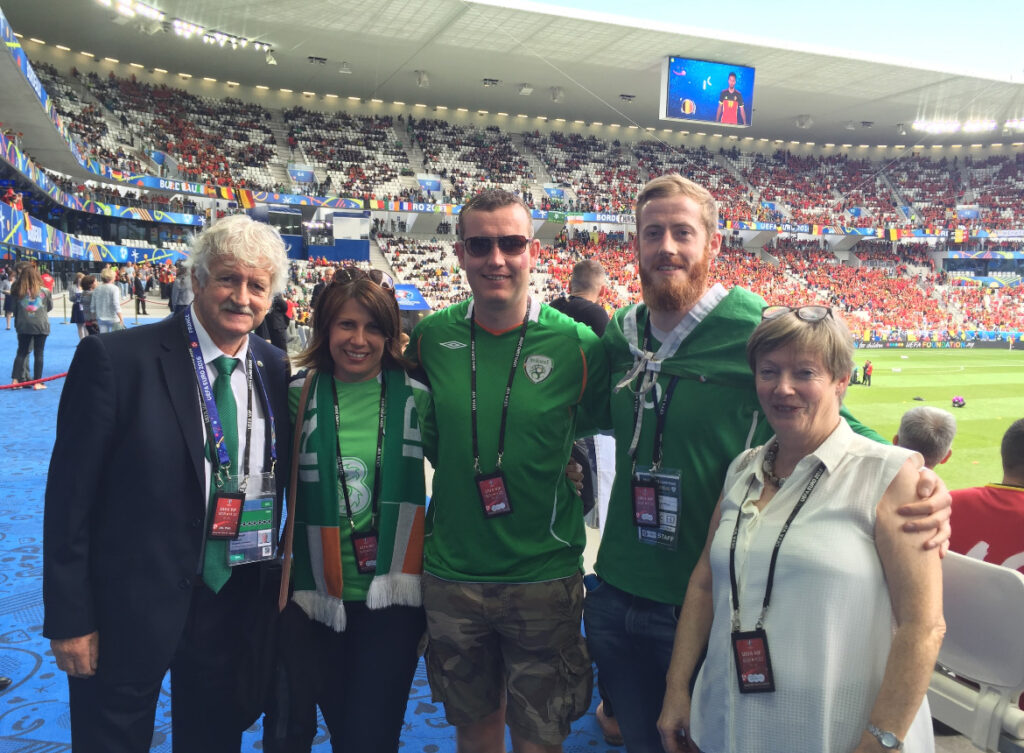
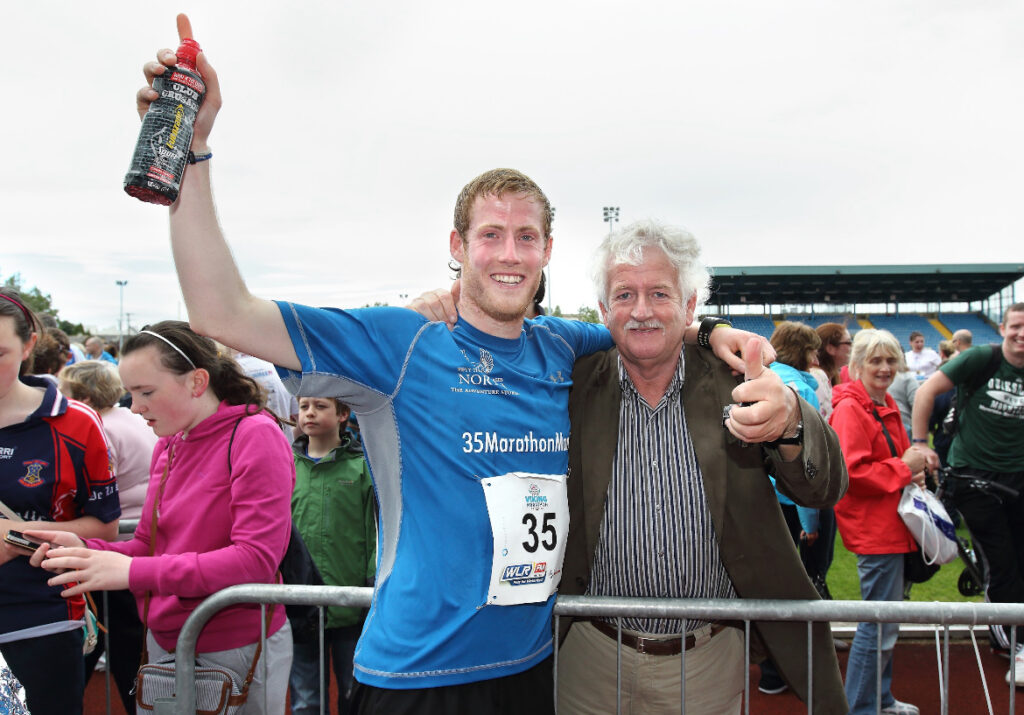
Credit: Garrett Fitzgerald
“I completely relied on them,” Alan reflects. “If the support weren’t there, I wouldn’t have been able to achieve my dream of swimming the coast of Ireland. I’m completely indebted to them for their time, effort and energy.”
Out at sea, with nothing but the rhythm of the waves, Alan found a peace that his life had stolen from him. Months of training and long stretches of swimming in open water offered him a rare stillness, away from screens, social media and the constant noise surrounding his life. “It’s hard not to process what has happened when you have your head up and down in the pool for a year, then spend weeks out at sea,” Alan says. “I enjoyed the peace of it.”
It took Alan just over a month to swim 500 kilometres from the Giant’s Causeway, down the east coast of Ireland, and into his hometown of Waterford. Swimming into shore is a feeling Alan will never forget. “It was amazing,” he says, “seeing friends from play school, primary school, or my running club make the effort to come out.” When he finally spotted his family it was “an incredible feel good moment, but bittersweet at the same time”, he explains, “given what the swim was all about and why I was raising money, my dad wasn’t there, unlike after the 35 marathon run, when we celebrated together.”
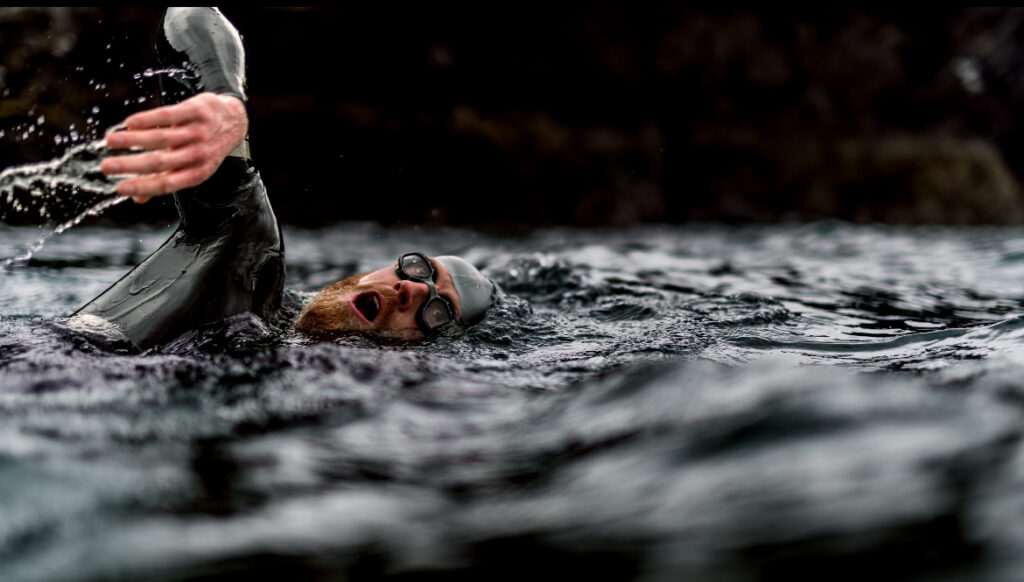
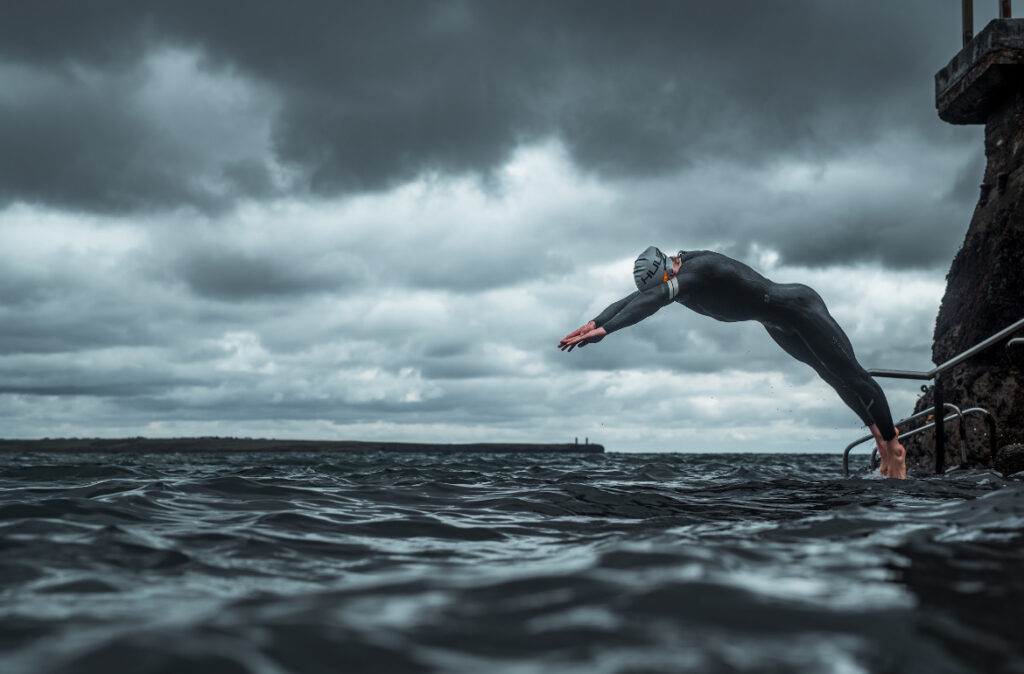
Credit: Niall Meehan
“It was amazing to have my family there,” he adds, “but not having Dad to share the moment was bitterly sad. My mam came with me at the start and visited me when she could at the different stops along the way, so I’m sure dad would have been there cheering me on every step of the way.”
Alan has since turned his triumph into both a book and a documentary. An idea for a “nice memento” to document the swim turned into Unsinkable, a film which has just completed a successful tour across 17 film festivals. Once he grew more comfortable with the demands of the swim, he began pouring more energy into shaping his story through his film. Looking back, Alan says he is “super happy” that he did it and is “really proud of it.”
Since completing his swim, Alan has had people contact him, recognising his inspirational achievement. Watching other people complete remarkable experiences is how Alan got into all his fundraising endeavours. He says, “It feels pretty great being on the other side of it and giving someone a bit of confidence to go out and try something new.”
Alan has raised over €40,000 from his marathon running and swimming. While some of the funds went to the Irish Heart Foundation, he has also donated to the Solas Cancer Centre. This organisation supported his family during his dad’s illness.
His contribution has gone towards counselling, relaxation therapies and other services at the centre. They host a safe space for cancer patients, their families and carers to find support, relax and process emotions.
Alan knows his money will help where it can, he says, “If one person can spot signs of a stroke and help someone get the quick treatment that they need, that will be phenomenal, you can only try to do your best to influence what you can and I hope my money has done good for the charities.”
Swimming has become something Alan can enjoy with friends and family, “I was out swimming in the sea today,” he says, “It’s part of my life now, but not to the same extremes, and I am certainly not spending six hours with my head down in the water.”
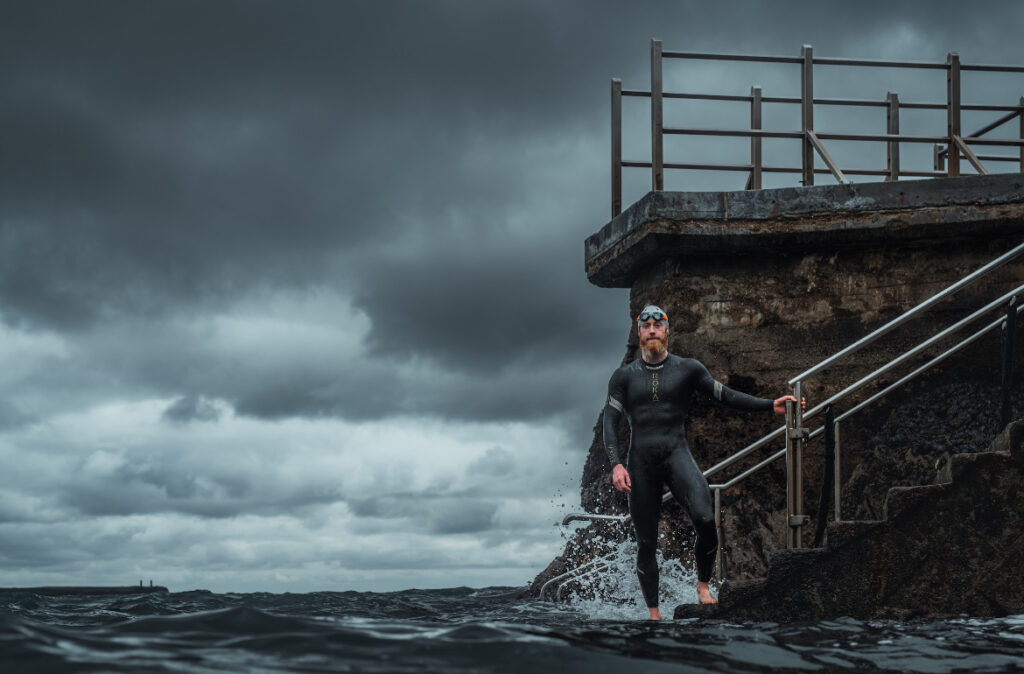
Credit: Niall Meehan
Alan’s change of pace comes with clarity. He explains how “you have got to do your best to enjoy the time you get with your loved ones. I would give a million bucks to get more time with my dad.” His time spent in open water helps Alan live his life and has given him a deep appreciation for the moments that matter most.

